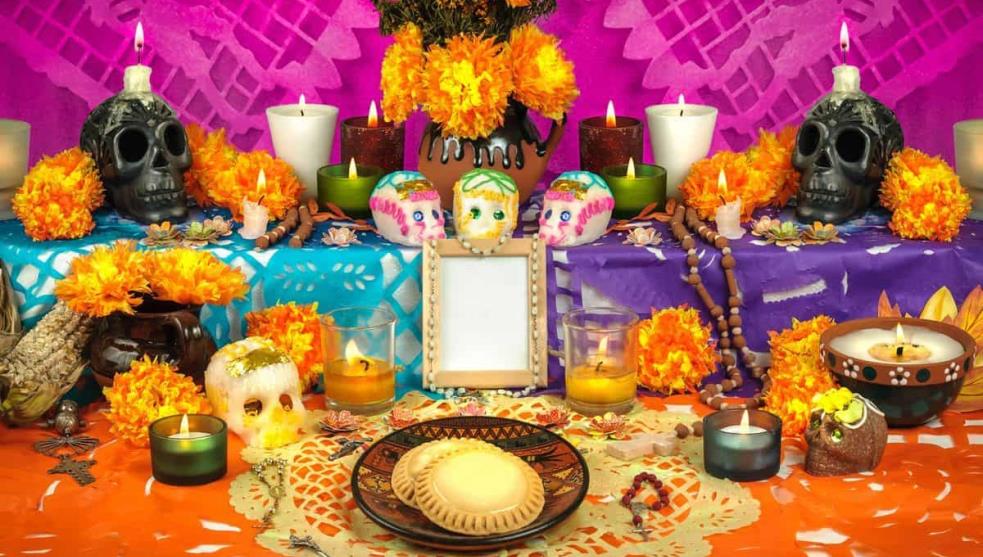Celebrations of the Dead Worldwide
By Sarah V. Hines, on November 1, 2019
In America, the month of October is dedicated to the celebration of Halloween, when children dress up in costume and go door to door in their neighborhood to receive candy from neighbors. Adults often partake on the fun, too, with Halloween themed parties, scary movie festivals, haunted houses, and visits to themed amusement parks. Halloween is a popular holiday in America, but few people stop to consider the roots of the event. Many countries have their own holidays celebrating the dead and visiting spirits. Here are three examples of such celebrations around the word.
The Hungry Ghost Festival, China

IMAGE SOURCE
The Buddhist and Taoist beliefs throughout China offer many different festivals to celebrate one’s ancestors and the spirits of those that have gone before. However, one festival is dedicated to all of those that have passed on, both young and old. The seventh month of the Chinese calendar is referred to as “Ghost Month” in Chinese (鬼月, Guǐ yuè). During this time, celebrants will say prayers for their loved ones. They also create banknotes, houses, cars and other goods out of what is called “joss paper,” a material that practitioners believe hold value in the afterlife. On the 15th day of Ghost Month, the celebration of “The Hungry Ghost Festival” commences, in which people will hold special dinners and make room at their tables with empty chairs for the deceased to eat with the family. During the night, paper lanterns in the shapes of lotuses will be released into the rivers, and traditional flying paper lanterns released into the sky. These are believed to help guide the spirits back to the afterlife so that they do not linger and bother the living.
Totensonntag, Germany

IMAGE SOURCE
More somber than the Hungry Ghost Festival is the German Protestant celebration of Totensonntag, or “Sunday of the Dead.” The day for celebration is the last Sunday before the advent calendar begins, always between November 20th and November 26th. The day is recognized by Germany as a protected holiday, and many states throughout Germany have laws against playing music in public places (or strictly limiting the hours that music can be played) and dancing during the observance. Worshippers will visit the graves of loved ones during the day and lay flowers and candles. In Wittenberg, Germany, people also use the day to visit the grave of Martin Luther, the constructor of the Protestant reform, in Schlosskirche (Castle Church), the church upon which the Ninety-five Theses were reported to be posted.
Dia de Muertos, Mexico

IMAGE SOURCE
Possibly the most popular celebration from around the world, Dia de Muertos (Day of the Dead) celebrates the life of a loved one passed. Practitioners will create an ofrenda, or “offering” to the deceased, which is often an altar of symbolic and significant objects placed around a picture of the deceased and displayed prominently in the home. These altars can include Calaveras (the sugar skulls that are often associated with the holiday), Aztec marigolds, and favorite foods of the deceased. The Calaveras are often created with cane sugar and decorated with colored foil, with small skulls representing children that have passed and larger skulls representing adults. Though celebrated near the end of November to coincide with the Catholic holidays of All Saints Day and All Souls Day, the holiday originated as far back as the Aztec rule during the beginning of summer and is believed to be a tribute to the goddess Mictecacihuatl, the goddess of the Underworld.
